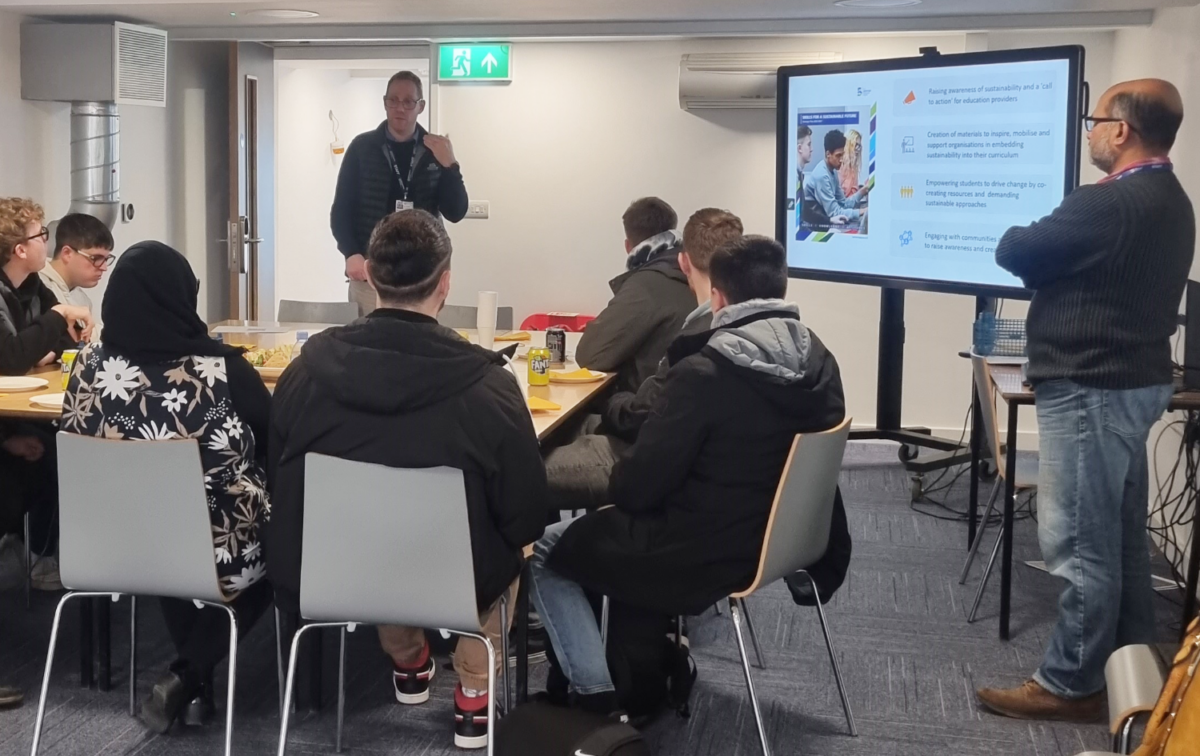Landmark ETF research reveals motivations and challenges of FE and training professionals

The FE and Training Conversation
- 82% of people working in Further Education (FE) and Training say the most rewarding aspect of their role is inspiring students, changing lives, and making a difference
- 31% say that the biggest challenge facing the sector right now is lack of funding
- One in five (19%) say the recruitment challenge is their main concern
The largest sector-wide survey of FE and training professionals conducted by the Education and Training Foundation (ETF) has revealed the most rewarding and frustrating aspects of working in the sector.
Inspiring learners, changing lives
The landmark survey of 4,252 teachers, trainers, support staff and managers working across the FE and Training sector found that 82% of respondents said that the most rewarding aspect of their job is inspiring students, changing lives and making a difference. For many respondents, this reward comes from seeing learners grow in confidence, and supporting learners towards their career goals. For almost one in ten (7%) of respondents, being part of a team of a community of FE professionals emerged as the most rewarding aspect of work.
The research shows that despite sector challenges, professionals working across the FE and training sector are overwhelmingly motivated by their determination to make an impact on the lives of learners. However, the research highlights an urgent need to ensure FE and training professionals are recognised for their contribution, and have the time and support to prioritise their own development – as this is being overlooked in the face of numerous challenges and frustrations.
Sector frustrations now and in the future
There is a clear call for further support, as 31% said the biggest challenge facing the sector right now is the lack of funding. One in five of respondents (19%) cited recruitment challenges as their main concern and one in ten (9%) said that mental health/stress and student behaviour was their biggest challenge. There are also significant frustrations with the amount of paperwork and reporting alongside challenges of poor administrative systems, with these issues emerging as the most frustrating aspect of jobs overall (23%).
Furthermore, one in five (18%) said the most frustrating thing about their role is the changing landscape of FE. Lack of funding and resources emerged as the third most frustrating aspect of their work (14%) with one in ten (10%) citing time pressure of most concern.
Looking ahead, respondents anticipate funding will still be the biggest challenge for the sector in five years’ time (25%), closely followed by recruitment (18%). A further 6% cited the changing qualification landscape and another 6% named addressing the digital skills gap as being the biggest challenge facing the sector in five years.
Vital importance of continuous professional development to benefit the sector
When asked about the further support that ETF could focus on that would benefit the sector most, three in 10 (30%) said developing the capability of the sector by designing and delivering continuous professional development. This was closely followed by a call to help raise the status of the profession by championing teachers, trainers and leaders (20%).
Jenny Jarvis, interim CEO at the Education and Training Foundation, says:
“The importance of the FE and training sector in the UK cannot be understated – it improves social mobility, enables higher wages, and boosts productivity.
“Our research demonstrates the vital contribution professionals working across the sector make to improving outcomes and transforming the lives of learners. It is also paints a clear picture of the challenges and frustrations that must be addressed in order to ensure a thriving FE and training sector.
“This research forms the first part of ETF’s strategic listening exercise to hear views from across the sector on how we can best support sector needs. Our commitment set out in our charitable purpose is to improve education and training for learners aged 14 and above, and supporting teachers and trainers throughout their professional journey will continue to be fundamental to our mission. This research provides added insight to help inform development of our new three-year strategy to be announced next year.”
Sarah Cattell, Workforce Development and Innovation Manager at Walsall College, says:
“We are so passionate about the work we do, whether that’s seeing the transformative impact FE and training can have on our learners, or the positive change it makes to the lives of those who work in the sector. However, it doesn’t come without its challenges, and it’s great to see ETF addressing these.
“Within my day-to-day work, I see the impact that continuous professional development can have. It’s crucial we continue to keep giving staff these opportunities to focus on professional development as they will ultimately benefit not just our learners, but the sector as a whole. By working with organisations like ETF, we can ensure we’re getting the best resources to continue evolving in our roles, and in turn, develop environments where our learners can thrive.”
Read the research summary here.











Responses